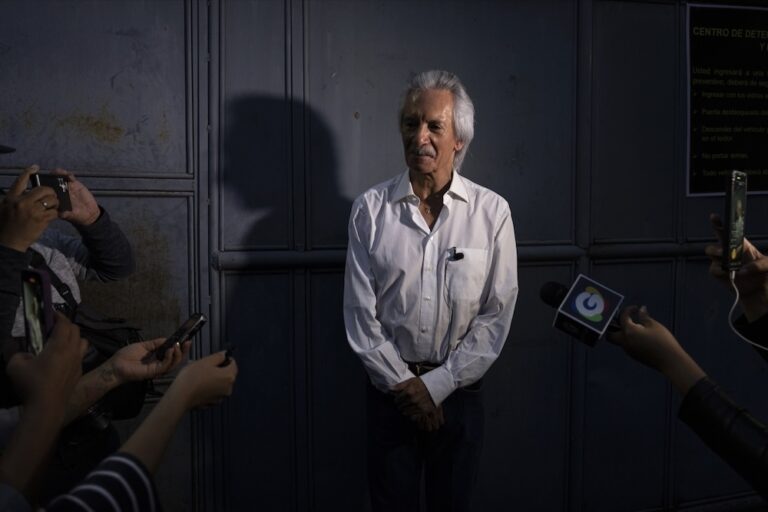(IAPA/IFEX) – The following is a 31 August 2006 IAPA press release: IAPA asks Guatemalan government to re-establish freedom of expression Governmental decree limits freedom of expression in region of combat against narcotrafficking Miami (31 August 2006) – IAPA today asked the Guatemalan government to fully restore the constitutional guarantee of freedom of expression and […]
(IAPA/IFEX) – The following is a 31 August 2006 IAPA press release:
IAPA asks Guatemalan government to re-establish freedom of expression
Governmental decree limits freedom of expression in region of combat against narcotrafficking
Miami (31 August 2006) – IAPA today asked the Guatemalan government to fully restore the constitutional guarantee of freedom of expression and of the press in the western region of San Marcos, where security forces are carrying out an anti-drug operation. As part of the operation, they have declared a state of emergency in the zone that restricts individual liberties.
IAPA believes that the governmental decree issued last Monday by the cabinet ministers of President Oscar Berger affects freedom of the press and contravenes the constitutional article that guarantees this right. For this reason, IAPA demands that the decree be modified to guarantee media the right to freely exercise their journalistic duties.
The president of IAPA’s Committee on Freedom of the Press and Information, Gonzalo Marroquín, stated that “no exceptional circumstance justifies putting a limit on the public’s right to information,” and he noted with special concern that the government decree leaves to the discretion of authorities what content media outlets will be permitted to disseminate.
The Guatemalan government issued a “cautionary decree” (“acuerdo de prevención”) that prohibits the carrying of arms, and limits freedom of movement and the holding of public demonstrations in five municipalities of San Marcos department, located on the border of Mexico, where a large number of poppy plantations and an intense north-bound drug flow have been discovered. “We believe that in no way should these prohibitions affect freedom of expression or of the press, by restricting the mobility of journalists, for example,” emphasized Marroquín, editor of the Guatemala City newspaper Prensa Libre.
So far, no cases of direct censorship or restriction of media have been reported by local radio stations or other local media, but according to Marroquín, “a fundamental principle is being violated” and these rights must be fully restored by modification of the decree.
Article 35 of the Guatemalan Constitution stipulates that “expression of ideas through any form of media is free, without censorship or pre-approval. This constitutional right may not be restricted by law or any governmental pronouncement.”
IAPA is opposed to any law or governmental decree that restricts freedom of expression or of the press in any country of the hemisphere, and has spoken up and protested whenever abuses have been committed in the name of “public safety” or “national security”. In the case of Venezuela, IAPA has denounced the restrictive legislation that the government has passed in recent years, which constitutes a limiting of the free practice of journalism and which affects the right of the public to receive information.


